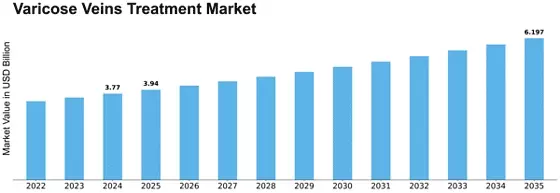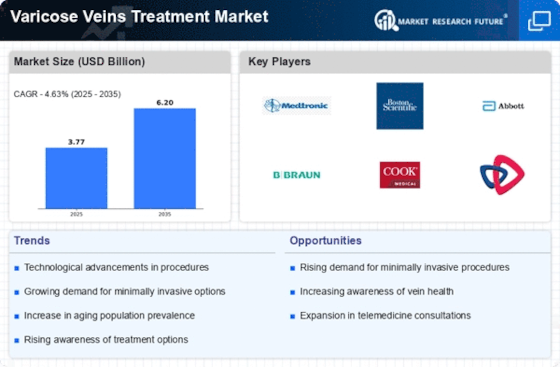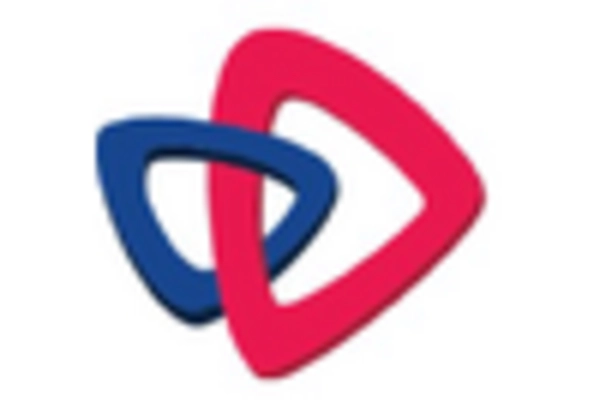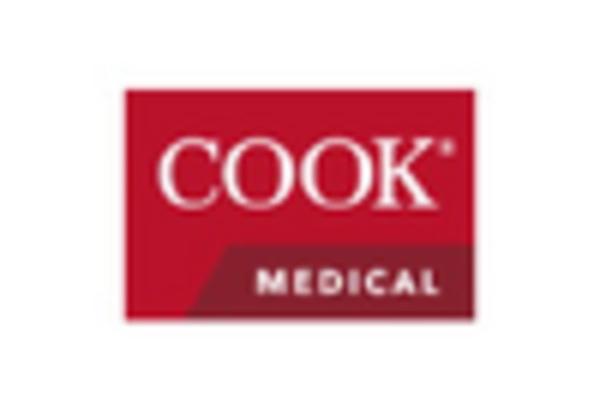Varicose Veins Treatment Size
Varicose Veins Treatment Market Growth Projections and Opportunities
The varicose veins treatment market is anticipated to reach USD 2.2 billion by 2032 at 6% CAGR. The Varicose Veins Treatment Market is affected by several aspects that affect its growth. Varicose veins, a common vascular disorder characterized by swollen and twisted veins, have driven market dynamics via high demand for effective therapies. Global varicose vein prevalence is a major factor. Developing new and more effective therapies drives industry growth.
Varicose vein therapy market dynamics are also influenced by technology. Advanced endovenous laser treatment, radiofrequency ablation, and sclerotherapy improve varicose vein therapies' safety, effectiveness, and patient experience. These technology advances increase treatment choices and boost market development by giving doctors more tools for precise treatments and speedier recovery.
Varicose vein therapy market trends depend on regulatory and approval processes. New medications, medical equipment, and procedures must meet strict safety and effectiveness requirements, and regulatory approvals verify therapeutic efficacy, enabling market access. Pharmaceutical and medical device businesses traverse these regulatory environments to introduce new and better varicose vein therapies, affecting industry dynamics.
Another key market driver is healthcare company and stakeholder competition. To improve their market position and varicose vein treatment portfolios, companies use mergers, acquisitions, and alliances. Companies innovate to stand out by offering new and better treatments. This rivalry drives market evolution by introducing new remedies and satisfying varicose vein patients' different wants.
Varicose vein therapy market dynamics are also influenced by economic variables. Patients' treatment cost and accessibility depend on economic conditions and healthcare spending. Economic downturns may prompt cost-conscious healthcare, affecting market growth. Conversely, a booming economy may raise healthcare investments, raising varicose vein treatment demand.
Market dynamics depend on consumer choices and awareness. Awareness of varicose veins and their influence on quality of life drives timely treatment, generating market demand. Customers' demand for minimally invasive procedures, shorter recovery periods, and outpatient treatments drive varicose veins therapy innovation."


















Leave a Comment